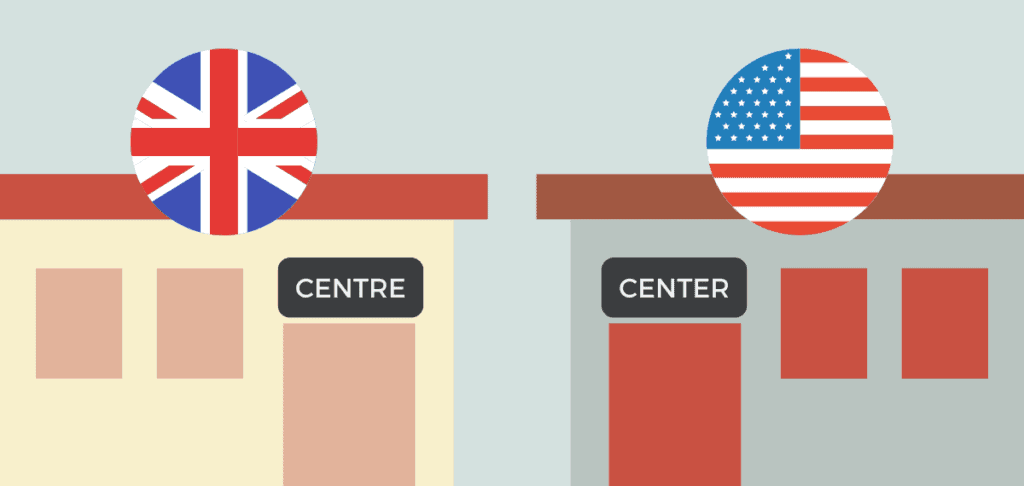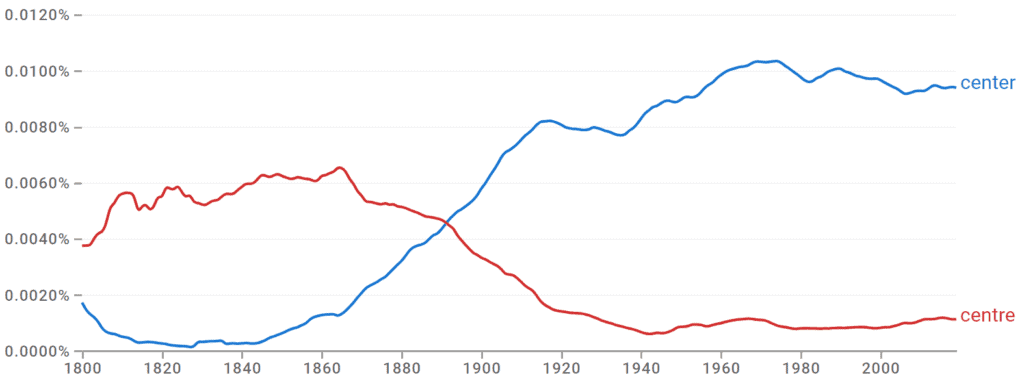The difference between center and centre is primarily in the spelling and where they’re used. While both words essentially mean the middle point or the core of something, there’s a subtle distinction. Center is the darling of American English, whereas centre proudly waves the British flag.
These aren’t just random spellings; they reflect deep-rooted linguistic preferences in British and American English. For instance, if you’re writing for an American audience, and you type “centre,” your trusty spell check might wag its digital finger at you.
Understanding these nuances isn’t just about being a grammar geek; it’s about communicating effectively, depending on your audience. So, why not delve a bit deeper with me? By the end of this article, you’ll master the ins and outs of these terms, complete with their origins and examples. Dive in, and let’s center our attention on this intriguing topic!
What Is the Difference Between Center and Centre?
Center and centre are the same words, but the differences between the two lie in the American vs. English spelling preferences. Center is the preferred spelling in American English, and centre is preferred in British English throughout the U.K. and Canada. The meaning stays the same despite the variances in spelling, although centre will be flagged as wrong in most American English conventional publications.
The word can be used as a noun, adjective, or verb—making it a very versatile word indeed. As a noun, it can be used to describe the exact center of something, such as a building or circle. It also can designate a type of organization or building, such as a research center or athletic center.
For example:
- Be sure to have your forms filled out and turned in to the Student Center by noon tomorrow.
- We met up at the town center near the fountain.
As an adjective, it is used to describe at or near a center. This would be used as the form central, centrical, or within the phrase in or by the center.
For example:
- The center lane is reserved for carpool vehicles only.
When used as a verb, the word will describe an object that is caused to be within or adjusted to the center of something, such as a person who centralizes themselves within a space or centers a picture on a wall.
For example:
- I need you to center your vehicle within the parking space since we have limited room in the lot.
Center/Centre Origins
Today, the modern use and definition of center have not changed since the late 1500s. The word made its way into English from Old French’s “centre,” which in turn originated from Latin’s “centrum.”
As time rolled into the 1800s, the British, with their knack for a touch of class, leaned towards “centre” —it felt more “proper” and became especially popular in highbrow settings and legal documents. Meanwhile, across the pond in America, “center” began to take the lead by the early 1900s. A significant push for this Americanized spelling came with the sale of Noah Webster’s dictionary to the Merriam brothers, who gave it an American touch with revised spellings.
Let’s Review
The word center is very versatile and can be used as a noun, verb, or adjective. It can mean a central location and can pinpoint an exact place or infer being near or in a center.
Centre is an alternative spelling, but unless you are British, center is the more acceptable spelling to use within America. Although both center and centre can be used, centre will be flagged as a misspelled word using American grammar and convention rules.


